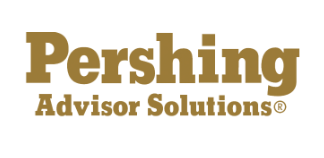Financial Advisor IQ – Making Staff Meetings Hurt Less Than Root Canals
March 2015
Waiting at the DMV, watching paint dry or getting a root canal strike many U.S. workers as preferable to attending staff meetings, according to a recent report by collaboration-software maker Clarizen. That’s why Mike Capelle and some of his colleagues at United Capital think imitating how medical doctors run meetings to prepare for surgery can make financial advisors’ workplace gatherings more interesting and efficient.
“Hospitals and medical clinics seem to have a knack for cutting to the chase of what is most critical in providing great service and care to patients,” says Capelle, who is chief strategy officer at Newport Beach, Calif.-based United Capital. “We think that same sense of urgency and focus can be applied to meetings between advisors.”
United Capital, which manages $13 billion, isn’t the only wealth-management firm trying to run meetings that both engage and inform FAs. Kevin Guth, a New Haven, Conn.-based managing director at New York-based Snowden Lane Partners since late 2013, is a case in point. “For years, I just hated weekly staff meetings,” he tells FA-IQ. In his previous incarnation as a Merrill Lynch broker, he came to view such gatherings as pep rallies to spur sales of favored fund managers and brokerage services.
On joining Snowden Lane, a firm with around $600 million under management, Guth set about ridding staff meetings of marketing flimflam and focusing the attention of the two other advisors and four support personnel on the needs and priorities of their clients. “It’s just so refreshing to walk into a room where everyone’s brainstorming about the best ways to help clients through a particularly thorny estate-planning or investment issue,” he says. And, as a result of this action-oriented, client-centric collaboration, “staff meetings are fun again.”
Brad Stratton, head and founder of Overland Park Wealth Management in Overland Park, Kan., is another ex-Merrill advisor who eschews sales talk at staff meetings to focus on holistic planning. But he finds some aspects of his wirehouse experience come in handy when running meetings for three other FAs and one full-time assistant.
Before starting his own RIA in 2012, which now manages about $90 million, Stratton was a Merrill branch manager whose duties included running meetings for 40 coworkers. Though challenging, the experience taught him the importance of time management. If, for instance, a senior advisor was given 10 minutes to speak about bonds, Stratton says he’d politely but firmly enforce those time limits. “It was a sign of respect — every advisor in the room knew that our meetings wouldn’t be allowed to run long,” he says.
Stratton is still a stickler for time limits, and he aims to get staff meetings done in 30 minutes. “You’re going to get more participation by telling everyone it’s going to last less than an hour,” he says. “If you can wind things up sooner, then people will walk away even more pleased.”
Checklists
But enforcing time limits goes only so far if meeting content is boring and presentation is lackluster, says United Capital’s Capelle. To create interesting, focused meeting agendas, he adapted procedures used by medical professionals — especially checklists — to the needs of advisors. He says surgeons routinely get operating-room personnel together and — in matters frequently of life or death — use such lists to make sure everyone’s on the same page for every part of the operation in question.
In recent years, as part of a phase-in involving United Capital’s roughly 100 FAs and 300-strong support staff, Capelle has been working to install a similar system. Before meetings, United Capital team leaders use checklists of agenda items in a dozen categories — from reviewing client-service goals to technology initiatives and business-development outlook — to mark down issues they feel staffers might find productive. “Checklists are simple yet effective ways to create content that’s tailored to what people want to hear about the most,” he says. “Our advisors are telling us they’re getting more out of staff meetings these days, and that’s helping them to become more productive.”
Follow @SnowdenLane
View Original Post




